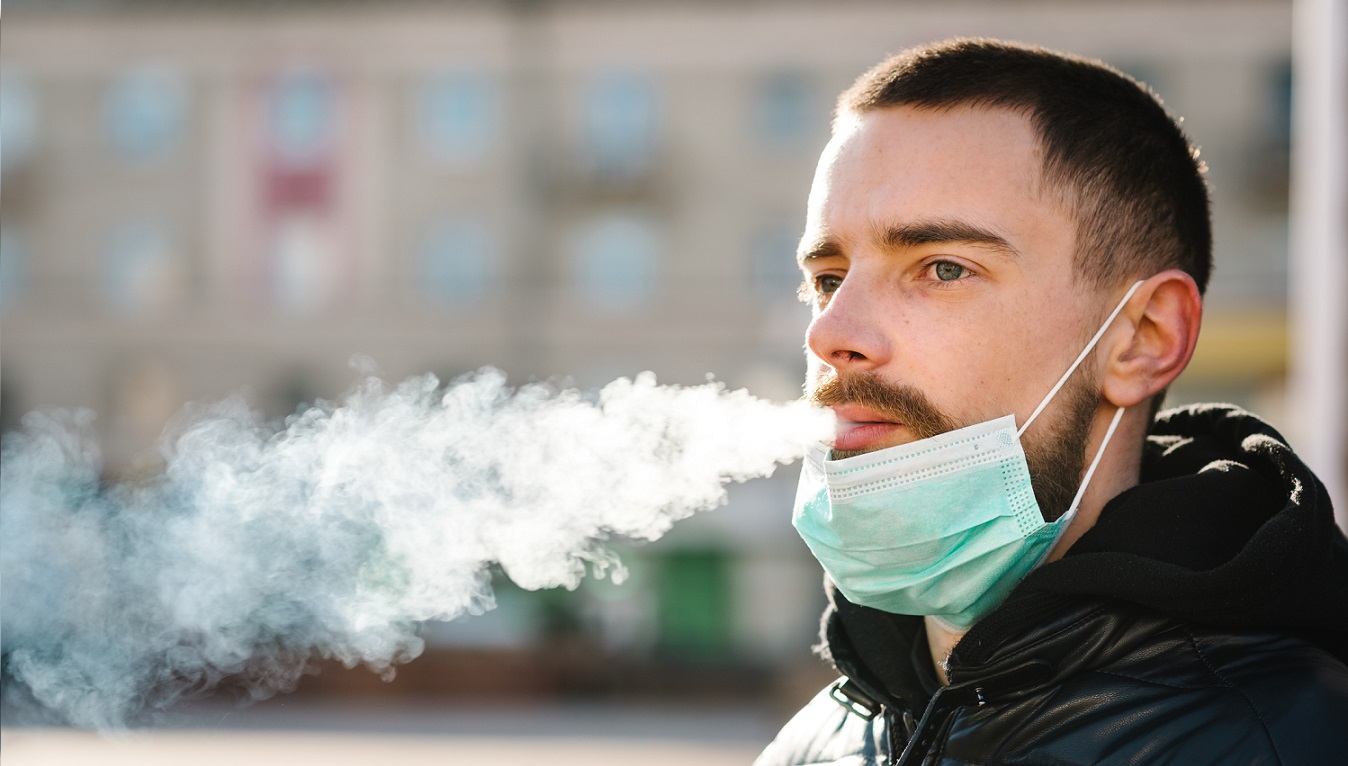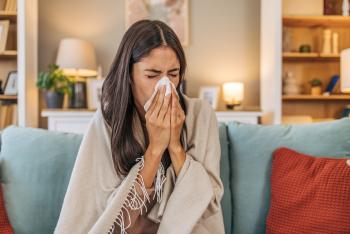Emphysema, a progressive form of chronic obstructive pulmonary disease (COPD), can severely limit...
Read More
As we continue to navigate the challenges posed by COVID-19, understanding the impact of our health choices has never been more important—and one factor that can impede recovery is smoking. Research shows that smoking not only damages lung health but also compromises the body’s ability to fight off infections, including the virus responsible for COVID-19.
Smoking has a wide range of harmful effects on the respiratory system. The toxic substances found in tobacco smoke damage the airways and lung tissues, leading to chronic obstructive pulmonary disease (COPD), emphysema and chronic bronchitis. These conditions significantly reduce lung capacity and function, making it increasingly difficult to breathe and recover from respiratory illnesses.
“When a smoker contracts COVID-19, the stakes are even higher,” said Patrick Ho, D.O., a pulmonologist at Inspira Medical Group Pulmonary. “Smokers are at a greater risk of experiencing severe symptoms. The inflammation caused by smoking can exacerbate the effects of COVID-19, leading to complications such as pneumonia and acute respiratory distress syndrome (ARDS).” Smokers are also more likely to require hospitalization and mechanical ventilation when infected with the virus.
The compromised lung function resulting from smoking can lead to prolonged recovery times. Smokers not only face a higher risk of severe illness but may also find themselves battling lingering symptoms long after the acute phase of COVID-19 has passed.
Quitting smoking can significantly improve lung function and bolster your immune system. “Within weeks of quitting, former smokers may notice enhanced lung function and an overall improvement in respiratory health,” said Dr. Ho. “This positive change can lead to a better immune response, making it easier for the body to combat COVID-19 and other respiratory illnesses, such as RSV and the flu.”
Not only does quitting smoking enhance physical health, but it also provides mental and emotional benefits. Individuals who quit smoking often report feeling more energetic and healthier overall. By making the decision to quit, you’re not just clearing the air for yourself; you’re enhancing your chances of a smoother recovery from respiratory illnesses.
If you or someone you know is struggling with quitting, support is available. The Quit Center at Inspira offers smoking and tobacco cessation programs tailored to individual needs—helping patients in their journey toward becoming smoke-free.
“For those who smoke or have a history of smoking, it’s vital to recognize the link between smoking and lung health and ask your doctor about lung cancer screenings,” said Dr. Ho. “Early detection can save lives, and addressing lung health can lead to a brighter, healthier future.”
By prioritizing your lung health and taking steps to quit smoking, you’re not only improving your well-being but also setting a positive example for those around you. Clearing the air can lead to a healthier future for everyone.

Emphysema, a progressive form of chronic obstructive pulmonary disease (COPD), can severely limit...
Read More
Mouth taping is a practice that promotes nasal breathing during sleep, which may improve sleep...
Read More
Walking pneumonia is a mild but disruptive form of pneumonia with symptoms like a lingering cough...
Read More